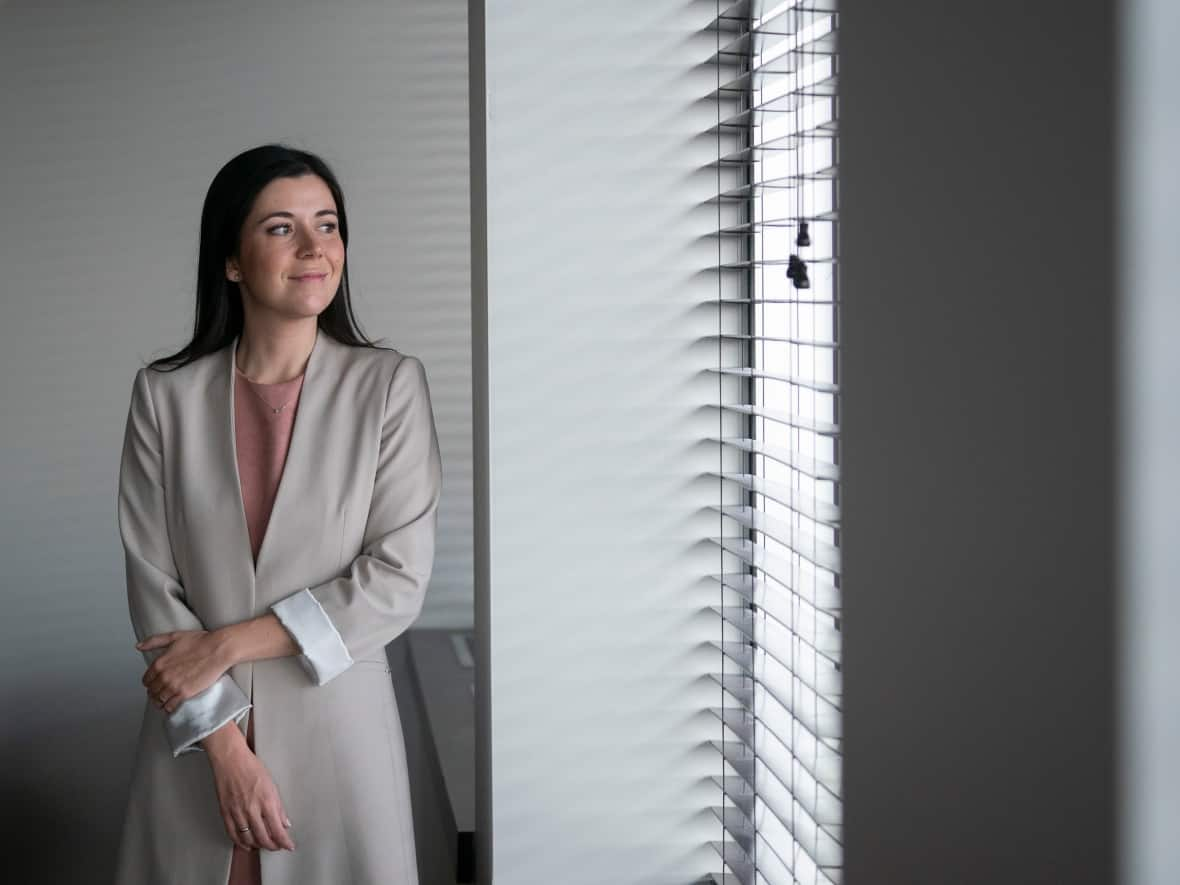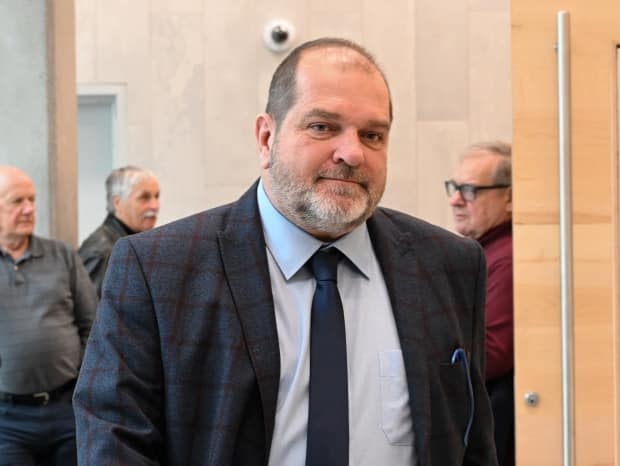Catherine Fournier, mayor of Longueuil, reveals she was sexually assaulted by Harold Lebel

Catherine Fournier, the mayor of Longueuil and a former MNA, has revealed that she was the victim of Harold Lebel, the former Parti Québécois (PQ) MNA convicted of sexual assault.
Fournier's identity was protected by a publication ban, but the ban was lifted on Tuesday at her request.
"The reason I chose to speak out now is to share my experience," Fournier wrote in a social media post. "To let others benefit from what I have learned by helping to dispel the misconceptions of a sexual assault victim's journey through the justice system, in the hope that something positive can finally emerge from these sad events."
The assault occurred on the evening of Oct. 20, 2017, when Fournier and Lebel, both PQ MNAs at the time, were in Rimouski to present their party's anti-poverty plan.
"Imagine being sexually assaulted by someone you have to work with every day," Fournier said in court. "A respected political figure, highly regarded by everyone, who knows everyone, while you are new in an environment where you are trying to prove yourself."
At the time of the sexual assault, Fournier had been recently elected to the National Assembly, representing the riding of Marie-Victorin in Longueuil.
Following the assault, Fournier continued her regional tour with Lebel. She also chose not to report it to the PQ party leadership for fear of repercussions on her professional career.
"I didn't want to talk about what had happened to my political party, to the people who worked in the party because, instinctively, I told myself that I was the new kid on the block. I'd only been elected a few months. I'm 25 years old," she told the court.
"He has been there for 30 years, everyone loves him, everyone appreciates him."

But Fournier said her position changed and she decided to speak out after she saw the arrest and sexual assault conviction of former PQ leader André Boisclair. Fournier said she noticed how in that case the victim's identity was concealed and not revealed in the media.
"I started to feel really bad about myself by telling myself that if I don't say anything [about my assault], and I was on all the platforms inviting people to denounce … I don't want to have that on my conscience," she explained in court.
Fournier reported the assault to authorities in the summer of 2020 after being reassured that her identity would remain confidential.
Nonetheless, details about the assault which could have identified her were posted online by a journalist, which horrified Fournier.
"I was completely shattered," she said.
Finally, however, a journalist approached Fournier with the idea to produce a documentary about her experience, to which she agreed.
It was to allow the broadcast of the documentary, produced by Quebecor, that the publication ban was lifted.
The film, which includes behind-the-scenes footage of Fournier as she goes through the judicial process, was screened on Tuesday afternoon.
In an interview with Radio-Canada, Fournier described how her perspective changed throughout the process.
Being subjected to accusatory questions during cross-examination when she took the stand to testify was a particularly difficult ordeal, she said.
After what she has gone through, Fournier said she sympathizes with victims who hesitate to come forward with their stories.
"If I had been asked a few years ago 'what would you do if it happened to you?' Of course, I would have answered 'well, I would have gotten up, I would have run away, I would have called the police, I would have reported it,'" she said.
"We all have our own way of thinking about ourselves and we believe that we would react this way in a given situation. But sometimes, obviously, that's not what happens."
Fournier said part of her grappling with coming forward with her story was confronting the "victim" label.
"I didn't want to live with that label," she said. "I always wanted to defend the victims, I didn't want to be one."
But ultimately, she said she is using the experience in part to encourage others to come forward. It may be difficult, she said, but there are support mechanisms available for victims.
"The message I would like to pass on is that if victims make the choice to go through the legal system, there are resources that are there, that are in place, I have benefited from them, I can testify to that and they are really valuable," she said.
Politicians react
Reaction poured in on social media and at the National Assembly on Tuesday from politicians who lauded Fournier's courage for telling her story.
Valérie Plante, the mayor of Montreal, said in a tweet she was proud of Fournier.
"She is an example of courage and strength," the tweet said. "It's a long, hard road for victims, but we must continue to fight, like Catherine, to end violence against girls and women.
Premier François Legault and Prime Minister Justin Trudeau saluted Fournier and said she was brave.
Geneviève Guilbault, Quebec's deputy premier, called Fournier "very courageous."
"It's courageous when anyone who was the victim of an assault whether they're a man or a woman (comes forward)," she said.
Manon Massé, a co-spokesperson for Québec solidaire, praised Fournier for coming forward with her story.
"Her actions are important for us women," she said. "It's an important message, particularly for young women."


